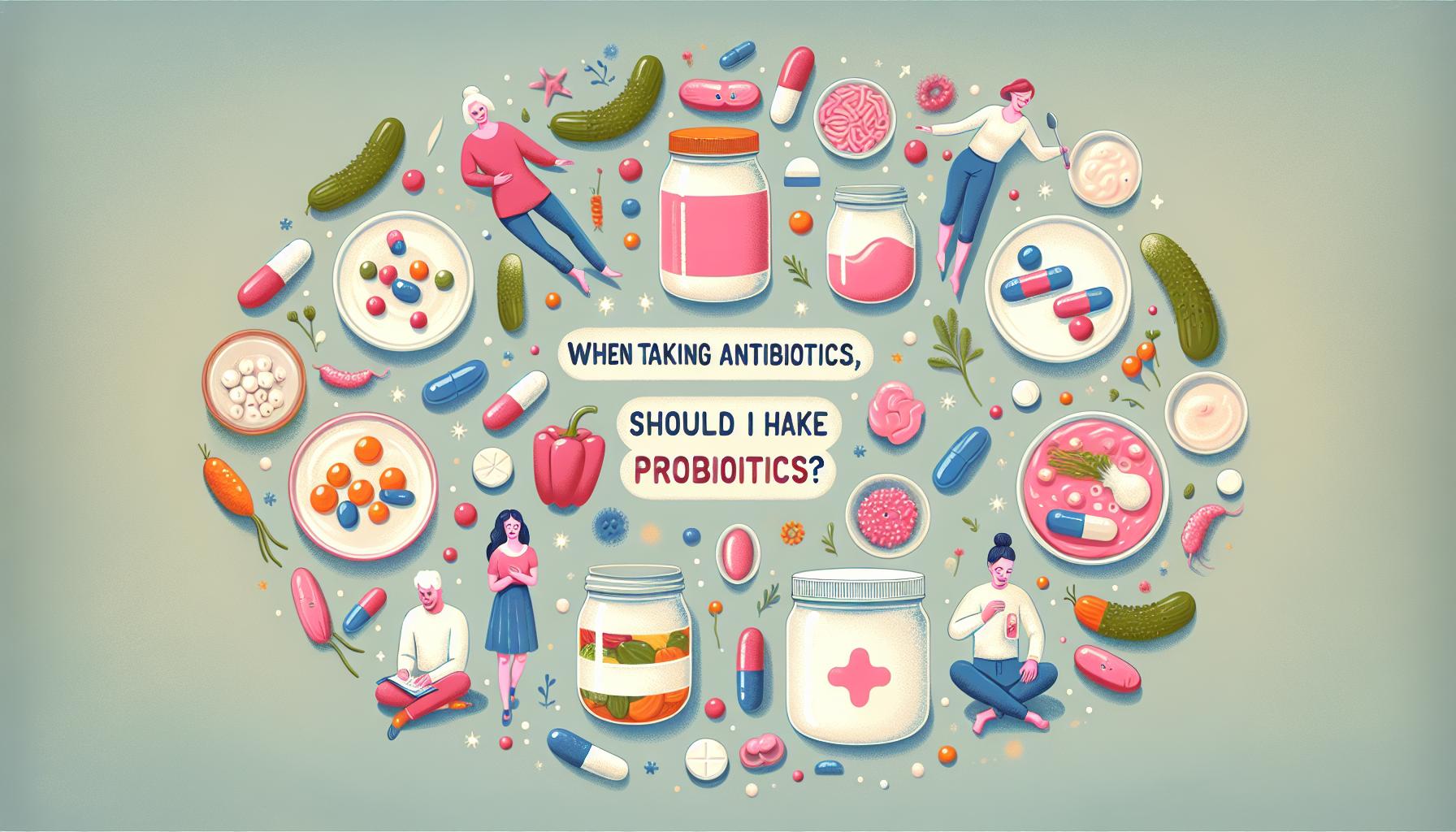
Introduction
So you’re on antibiotics and wondering “Should I also take probiotics?” In short, the answer is a resounding yes. When antibiotics wage war on the bacteria causing your illness, they also disrupt the friendly bacteria in your gut. Probiotics can help restore balance to your body’s bacterial population. We’re going to delve into more specifics on why and how you should incorporate probiotics during an antibiotic regimen, the potential risks, and when is the best time to start.
The Antibiotics and Probiotics Dynamic Duo
Antibiotics, as powerful as they may be in fighting off harmful bacteria, are like a bull in a china shop. They aren’t picky. Ill-doing bacteria or beneficial ones, all come under their indiscriminate onslaught. Our gut is a teeming metropolis of bacteria, with the good fellows outnumbering the bad ones. The use of antibiotics disrupts this harmonious balance, leading to a compromised digestive system and potential for unpleasant side effects.
Fighting the Good Fight with Probiotics
This is where probiotics enter the picture, like superheroes rushing to save the day. Simply put, probiotics are friendly bacteria that contribute to a healthy gut. They help in boosting the ranks of good bacteria, aiding digestion, and enhancing immune response.
Timing Is Everything: When to Take Probiotics
The questions of “when” and “how” to take probiotics while on antibiotics varies somewhat. The most common advice is to take probiotics a few hours after taking your antibiotics, to give these medications time to do their job before welcoming the friendly reinforcements.
Probiotics Post-Antibiotics
Equally important is to continue taking probiotics after finishing your antibiotics. This helps to repopulate the gut with beneficial bacteria, thus facilitating a swift return of your digestive system to its natural state.
Potential Risks: Extra Caution for Certain Individuals
While the combination of antibiotics and probiotics is generally considered safe for the majority, it may not be best for everyone. People with weakened or compromised immune systems, for example, might want to skip the probiotics during their antibiotic treatment and consult with their healthcare provider for personalized advice.
The Main Message to Takeaway
Remember, though antibiotics are vital for overcoming bacterial infections, the bad bacteria they destroy aren’t the only casualties. They also impact the good bacteria our body needs for optimal health. Adding probiotics to your routine while on antibiotics helps retain that delicate balance and support your overall wellbeing.
Conclusion
So there you have it. Taking probiotics while on antibiotics can be considered an act of clever counterbalance. By enlisting the help of these friendly bacteria, you can lessen the collateral digestive damage caused by antibiotics and maintain your gut health. However, always remember to listen to your body and consult your doctor before starting any new regimen.
Frequently Asked Questions
1. What are the best probiotics to take while on antibiotics?
Probiotics strains from Lactobacillus and Bifidobacterium families are often recommended, but it’s best to consult a healthcare professional for personalized advice.
2. Can probiotics interfere with antibiotics?
Typically, probiotics do not interfere with antibiotics. However, they should be taken a few hours apart to make sure antibiotics won’t kill the probiotics.
3. How long should I take probiotics after antibiotics?
You should continue taking probiotics for at least one to two weeks after finishing your antibiotic course, but you may benefit from long-term use as well.
4. Can taking probiotics cause any side effects?
Most people don’t experience side effects from probiotics. If they occur, they’re usuall mild like gas, bloating, or an upset stomach.
5. How can I get probiotics naturally?
Some foods that are rich in probiotics include yogurt, kefir, sauerkraut, tempeh, and kimchi. Including these in your diet can help enhance your gut microbiome healthally.

